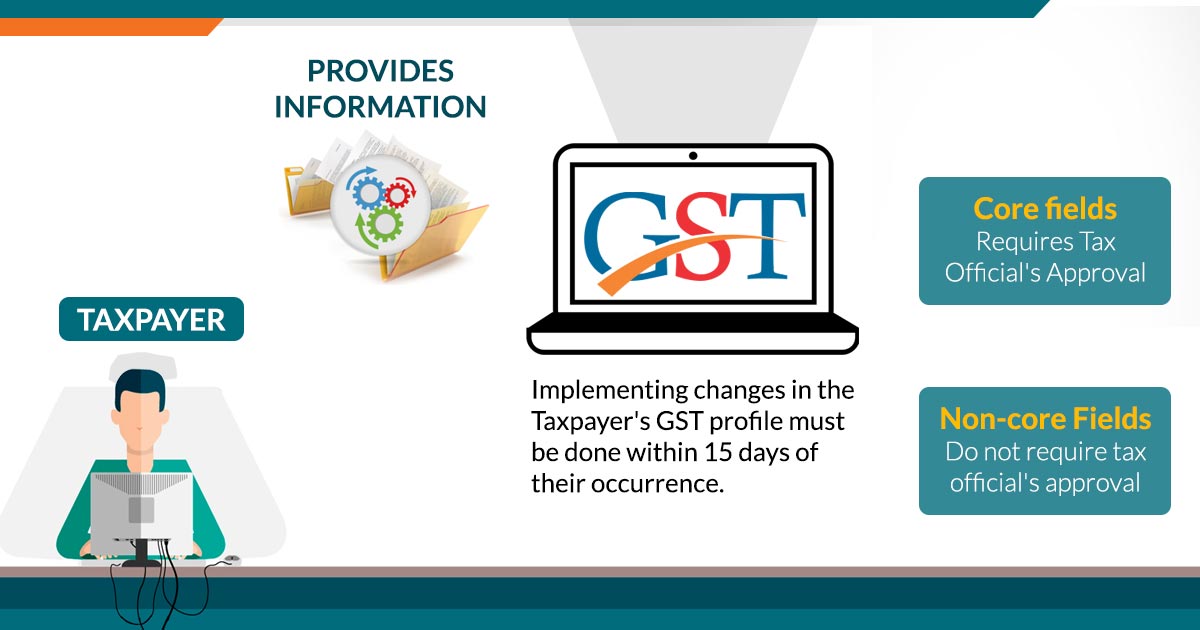Complete List for Efficient Singapore GST Registration
Complete List for Efficient Singapore GST Registration
Blog Article
Maximizing Tax Obligation Effectiveness: Professional Tips on Navigating the GST Registration Maze for Small Organizations
Navigating the detailed landscape of Product and Services Tax (GST) enrollment can be a labyrinthine task for little companies intending to maximize their tax performance. Comprehending the qualification requirements, careful documentation demands, strategic timing considerations, and experienced enrollment process tips can significantly impact a business's monetary standing. Conformity with GST policies is vital, and sticking to best methods can enhance procedures and protect against possible challenges. In this conversation, we will explore skilled understandings and workable suggestions that can equip little organizations to browse the GST registration puzzle properly and optimize their tax obligation performance.
Qualification Criteria
Eligibility needs for Local business GST Registration incorporate details requirements that businesses need to satisfy to conform with tax obligation guidelines. To receive GST enrollment, a company must have a yearly turn over surpassing the threshold established by the tax authorities, which differs by nation. In addition, organizations associated with inter-state supply of products or services, or those offering products online, may be called for to sign up for GST, irrespective of their turn over. It is crucial for organizations to accurately determine their qualification based upon these turn over limits to stay clear of charges for non-compliance. Singapore GST Registration.

Documents Needs
To efficiently complete the process of GST registration, local business need to guarantee they have all necessary documents in order. The required documentation generally consists of evidence of company registration or address, consolidation and identification evidence of the company owner, photos, savings account information, and proof of the primary workplace. Furthermore, organizations require to provide information of their organization tasks, consisting of the services or items supplied. It is crucial to ensure that all files are accurate, as much as date, and in the specified style to protect against delays or denials during the enrollment process.
Besides the mandatory papers, companies might additionally be called for to send additional information based on their particular conditions. This could include documents connected to partnerships, the permission of signatures, or any type of other appropriate contracts. Keeping all needed documentation arranged and readily easily accessible you can check here can improve the registration process and aid businesses abide by the requirements effectively - Singapore GST Registration. Failure to offer the needed paperwork may more helpful hints result in hold-ups or perhaps being rejected of the GST registration application. Precise focus to detail and adherence to the documentation standards are crucial for a successful GST registration procedure for small services.
Timing Considerations
Considering the essential documentation demands have been meticulously addressed, the next essential element for small companies starting the GST enrollment process is the calculated monitoring of timing considerations. Timing plays a crucial function in GST enrollment, influencing not just compliance yet additionally financial facets of business. Small companies need to meticulously plan the timing of their GST enrollment to optimize advantages and decrease possible dangers.

Moreover, services ought to align the timing of their GST enrollment with their functional readiness. Adequate preparation, such as updating bookkeeping systems and training staff, is important to perfectly incorporate GST needs right into daily procedures. By purposefully taking care of timing factors to consider, small companies can navigate the GST registration process effectively and optimize their tax efficiency.
Enrollment Process Tips
Effectively browsing the GST enrollment procedure needs tiny organizations to execute proactive and strategic registration procedure ideas. This consists of company registration papers, evidence of address, financial institution declarations, and recognition evidence of the business proprietors.
Additionally, comprehending the limits and needs for GST enrollment based upon the particular state or area where business runs is necessary. Some states have different turnover thresholds that activate obligatory enrollment, so being notified regarding these limits can aid businesses plan in advance.
One more beneficial idea is to consider looking for professional assistance from accounting professionals or tax obligation professionals who concentrate on GST enrollment. Their proficiency can simplify the procedure, lower errors, and make sure compliance with all regulations.
Conformity Best Practices
Small organizations must focus on compliance to prevent charges and preserve a good standing with tax authorities. Small company proprietors ought to on a regular basis examine government standards and look for expert advice if needed to ensure they are helpful resources satisfying all needs. By incorporating these compliance best techniques into their operations, tiny organizations can navigate the intricacies of GST registration with self-confidence and effectiveness.
Final Thought
To conclude, local business can navigate the GST enrollment puzzle by ensuring they meet qualification requirements, collect required documents, take into consideration timing implications, comply with registration process pointers, and stick to compliance finest techniques. By maximizing tax efficiency with correct GST registration, services can enhance their financial administration and procedures.
Browsing the intricate landscape of Product and Solutions Tax (GST) enrollment can be a labyrinthine job for little businesses intending to maximize their tax obligation effectiveness.Qualification needs for Small Organization GST Registration encompass certain standards that companies need to meet to conform with tax obligation regulations. The called for paperwork usually includes evidence of organization registration or unification, identification and address proofs of the organization proprietor, pictures, financial institution account details, and evidence of the major location of business. Furthermore, organizations need to provide information of their service activities, including the services or goods provided.Effectively browsing the GST enrollment procedure needs little organizations to implement positive and critical registration procedure ideas.
Report this page